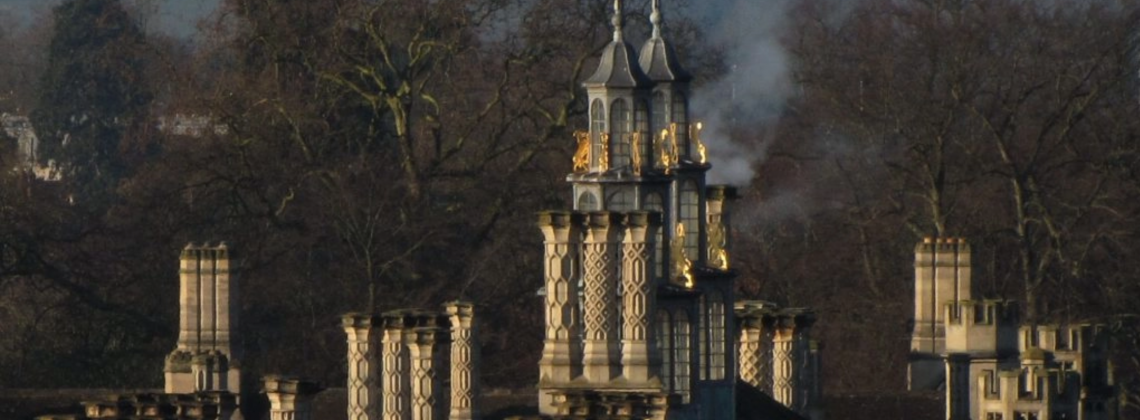

What can turn an assignment into a feast? A Book of Magic, of course—and a city of magic, too
When I moved to England for graduate school, I began studying an anonymous sixteenth-century manuscript. It was labelled “Book of Magic” in the library archive, and it was full of secret rituals to obtain power, prophecy, and riches. Bound in medieval sheet music concealing its dangerous content, the book had one declaration of desire after another: “all that I wish,” “at my pleasure,” and “fulfill my desire,” it read. The most frequent recipe was “for love.” After I discovered the manuscript, I joked with friends that the spells didn’t work. But they did: because I was enthralled.
Even the place in the library where I researched the manuscript’s content seemed mysterious. If memory can be trusted, it was a bright nook beneath a stairwell—the light oddly crisp, as if inviting the recovery of strange knowledge. What surely was a matter of classification seemed like an attempt to quarantine those books, which gave my work an uncanny feel, especially since I was the only one in that part of the library for hours and afternoons on end.
After being in the library, I would walk through a city that felt magical, too. Disoriented from study with whiplashed thoughts still returning from the past, I would make my way down ancient streets. In his memoir Speak, Memory, Vladimir Nabokov says that Cambridge opened up an unbroken sense of time. For me, “the narrow lane, the cloistered lawn, the dark archway” that Nabokov describes fashioned the architecture of enchantment, storybook beautiful and unnatural as dream logic. On the nights I attended dinner at my college, I would leave the library, cross the city, and enter a massive hall with tables that ran the length of the room, full of students dressed in black academic gowns. Before the meal, a scholar would recite Latin Grace, petitioning with the same phrases that the manuscript used for conjuring.
I traversed Cambridge by bicycle and on foot, crossing spaces thick with association: the worn staircase I climbed to my supervisor’s rooms, each narrow step demanding careful balance; Silver Street after ceilidh dancing, with empty corridors and echoes of laughter; chapels with evensong services and timbered pews that creaked when people shifted in their seats; tea gardens that served scones with sweet cream and jam; and King’s College with its Christmas concert lit by candlelight, overhead only darkness and voices like the hymnody of heaven.
There were lectures, tutorials, concerts, and plays, the days preternaturally full—and always full of books. I saw the library open and close, and I moved through the city during odd hours when it seemed uninhabited. At times I felt like a ghost.
When I handed in my work on the “Book of Magic,” my examiners noted an indiscriminate, almost obsessive aspect to the research. “Less a bibliography project than a feast,” one said.
The remark clarifies my time in Cambridge and all those months spent turning the manuscript’s past into a story. The enticements to intellectual discovery I hardly processed, only pursued, and everything felt possible there—with alluring erudition at every turn.
After my last examination, it began to sleet, leaving a candied scatter of ice at the edges of roads, walkways, and in the folds of my jacket as I crossed the university to my room in a place called Owlstone Croft. The city seemed suddenly inhospitable even as I longed to stay. But the spell was broken. My time was up.
Months later, living in a grey cityscape an ocean away, after a day of work in a government office, I dreamed of the banks of the river Cam in warm sunshine, narrow streets of sunlit stone, and rooms full of dark volumes. I remember the first words I read in the manuscript, written in black sixteenth-century scrawl, the letters like burns on the page: “I conjure you.”
Robert Erle Barham is Associate Professor of English at Covenant College in Lookout Mountain, GA.
Robert Erle Barham is Associate Professor of English at Covenant College in Lookout Mountain, GA.